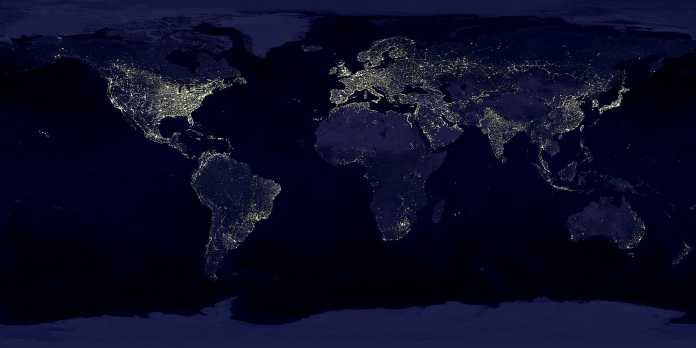By Vijay Jayaraj
Fossil fuels are out. Coal is no longer king. The Middle East faces an oil crisis. These are typical headlines in the mainstream media.
Unreported is the hard reality of the world’s fossil-dependent developing economies. This story goes untold because media in the developed West seek to create a perception of an inevitable transition to energy markets free of hydrocarbons.
Whatever is behind the media’s ignorance — or neglect — of the proliferation of coal, oil and natural gas, it creates a false impression among the public that an energy sector free of fossil fuels is feasible. It is not. Fossil fuels are projected to be the largest primary source of energy for many decades.
Who would have thought that coal would be one of the most sought-after primary fuels after the anti-fossil pledges at the COP26 climate conference in Glasgow last year? Coal prices have reached historic highs, courtesy a post-pandemic increase in demand from Asia-Pacific.
For close observers of energy markets, this is no surprise. But for others, the demand for coal may seem an anomaly after being bombarded with the annual bombast of climate-conference attendees promising to abandon fossil fuels.
Most westerners don’t understand that the demand for fossil fuel in developing economies is extremely high. Between 1990 and 2020, coal consumption in the U.S. almost halved and was reduced to just one-third in the EU. Despite this, global coal consumption increased from 5.2 billion tons in 1990 to 8.5 billion tons in 2016. The International Energy Agency’s (IEA) Coal Report 2021 says that global power generation from coal increased about nine percent in 2021, producing “more power from coal in 2021 than ever before.” This is because emerging economies are beginning to use more coal as domestic energy demand increases and will continue to do so well into the future.
Consider India, a country that will outpace every other with its rate of increasing energy consumption. IEA reports that the subcontinent’s growth rate of 25 percent will be the highest of any over the next two decades. By 2030, it will consume more energy than the entire European Union, making it the third largest consumer behind China and the U.S.
Consistent with this, India has revised upward by 20 percent its target for domestic coal production — to at least 1.2 billion tons coal by 2024. Demand is expected to reach 1.5 billion tons by 2030.
The country expects domestic mines to meet most of the demand, except for industrial processes that require higher quality coal from countries like Australia and South Africa. To meet its target, the government has relaxed some environmental regulations for the mining sector and is improving transportation infrastructure serving mines.
As the global leader in fossil fuel consumption, China is moving in a similar direction. Between 2013 and 2016, China’s coal production declined. While most of the world thought that it wouldn’t be able return to previous levels of output, the country did just that — and more.
China has steadily increased production since 2016 despite being a member of the Paris climate agreement, When China’s coal production for 2021 was reported, western media houses like the UK’s Guardian lamented that the all-time record high of 4.07 billion tons — four percent higher than 2020’s — was a “blow to climate campaigners months after the UN’s COP26 climate talks in Glasgow.”
But this production record may not be anywhere close to levels China may have to achieve in the future to match its rapidly growing economy and its need for energy in the winter. Along with that of coal, China’s demand for oil is on the rise with no end in sight.
Overall, the developing economies’ need for fossil fuels is so great that OPEC — the consortium of oil producing countries — forecasts a sustained demand for oil well into the second half of this century. OPEC predicts that global demand for oil may peak around 2040, although many predictions of such peaks have been wrong in the past.
The reality that fossil fuels will dominate the global energy sector for many decades renders meaningless the sacrifices people in the West are being asked to make — high energy prices and shortages — to purportedly save the planet from the fabricated crisis of global warming.
Vijay Jayaraj is a Research Associate at the CO2 Coalition, Arlington, Va., and holds a Master’s degree in environmental sciences from the University of East Anglia, England. He resides in Bengaluru, India.
This article was originally published by the CO2 Coalition, and was republished with permission.

















